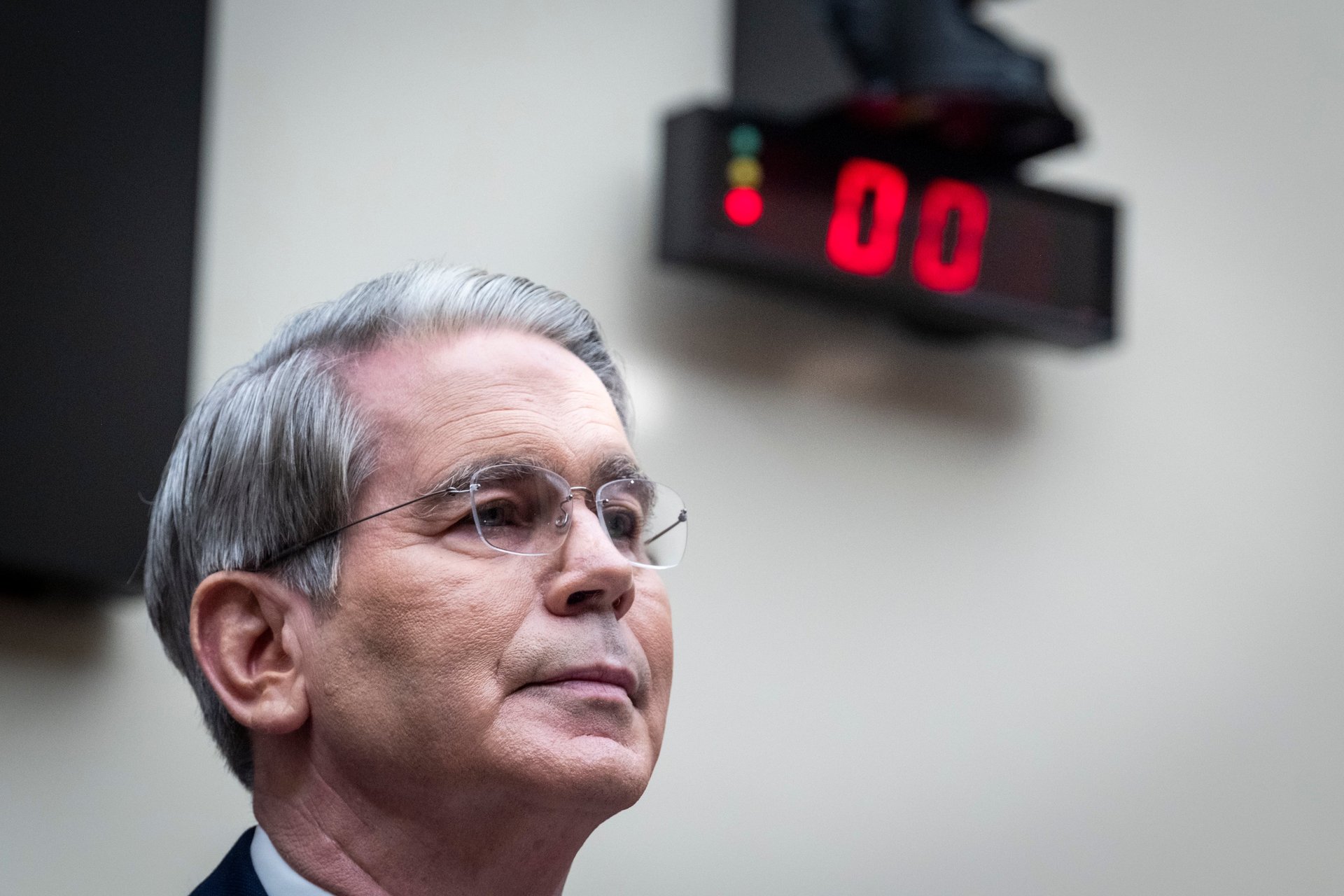Scott Bessent says U.S.-China trade negotiations are 'stalled'
Just weeks after a dramatic tariff rollback, negotiations are at a standstill. And as legal uncertainty mounts, 83% of CEOs expect a recession

U.S. Treasury Secretary Scott Bessent said Thursday that trade negotiations with China are “a bit stalled,” just weeks after both sides declared a 90-day tariff truce.
Suggested Reading
In an interview with Fox News (FOXA), Bessent suggested that actual progress may hinge on a direct call between President Trump and Chinese President Xi Jinping. “Given the magnitude of the talks… this is going to require both leaders to weigh in,” he said.
Related Content
The comments underscore how quickly optimism over the May breakthrough has faded and the ongoing policy whiplash making it difficult for investors and business leaders to tell which way is up. The temporary truce had seen both countries drastically slash reciprocal tariffs — cutting U.S. rates on Chinese goods from 145% to 30%, and Chinese tariffs from 125% to 10% — in what Bessent described as a shared effort to avoid “de facto economic decoupling.”
But the legal and diplomatic terrain since then has only grown more complex
To recap: On Wednesday of this week, the U.S. Court of International Trade ruled that many of Trump’s tariffs were unlawfully enacted, threatening to roll back large portions of his trade agenda, including aspects of his China-specific initiatives. Then, on Thursday, a federal appeals court issued a temporary stay, allowing the tariffs to remain in place while it reviews the case. The administration now has until June 9 to make its arguments, with the White House vowing to escalate the battle all the way to the Supreme Court if needed.
Trump officials have also hinted at fallback plans, including using Section 122 of the Trade Act of 1974 to impose temporary tariffs of up to 15%.
Meanwhile, U.S.-China talks appear frozen and CEO pessimism is surging
Despite interest from other trade partners like India and the EU to move forward on sector-specific deals, the U.S.-China dialogue necessarily remains the centerpiece of any breakthrough. That’s no surprise, given that the U.S. and China are the world’s two largest economies and each other’s biggest trading partners. Their negotiations are uniquely consequential for global supply chains, inflation, and investor confidence.
For now, those negotiations are once again at a stand still. The tariff pause remain in effect, but investors may once again be asking whether this latest “reset” hints at yet another behind-the-scenes setback. For businesses, it’s more whiplash, too. The sudden tariff pause, their near-immediate reinstatement, the legal uncertainty, and now a stalled negotiation process have left many unsure whether to restock, retreat, or hold the line.
According to data released just yesterday by the Conference Board, a whopping 83% of CEOs now expect a recession within the next 12 to 18 months. “CEO Confidence collapsed in Q2 2025 after surging in Q1,” said Stephanie Guichard, a senior economist at The Conference Board. “All components of the Measure weakened into pessimism territory. CEOs’ views about current economic conditions led the plunge, registering the largest quarter-on-quarter decline in almost 50 years.”
